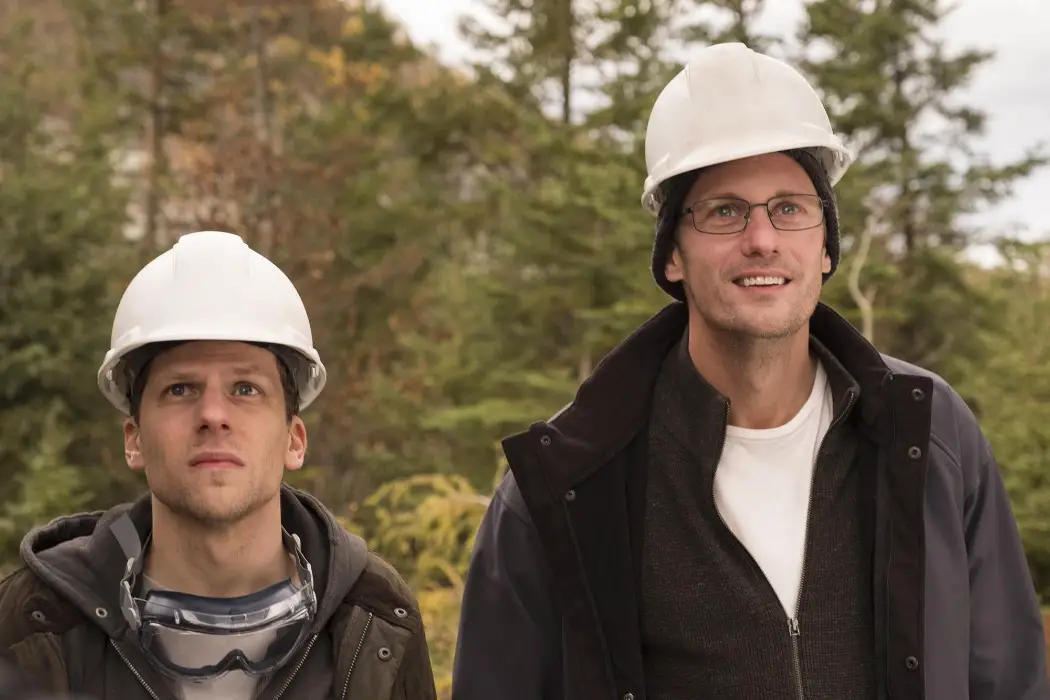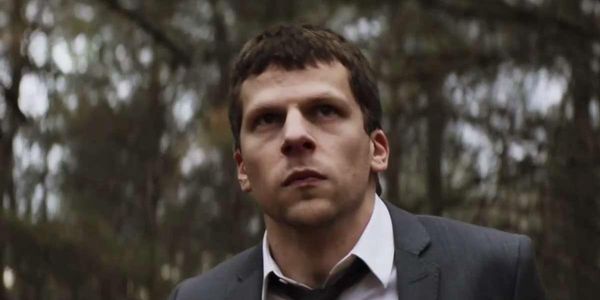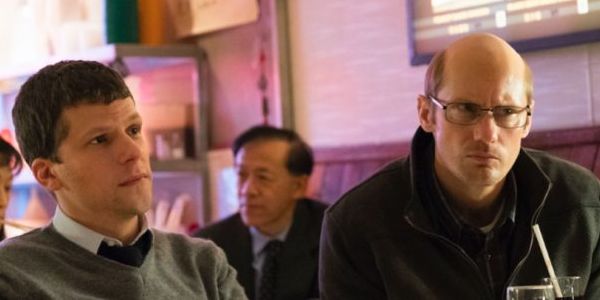THE HUMMINGBIRD PROJECT: A Movie Without Balance

Soham Gadre is a writer/filmmaker in the Washington D.C. area.…
Good storytellers are great at balancing acts. They can make boring and niche subjects into something universally compelling. They can juggle the conflicting moralities of their central characters with great skill. This is easier said than done, and most movies aren’t able to maintain this for their entire run-time. This is the issue that befalls Kim Nguyen’s latest film The Hummingbird Project.
The movie aims to balance both the niche tech subjects of civil engineering and high-frequency trading with a traditional thriller plot. It’s a hard line to balance on, especially for a film aiming for a high budget and reliant on a high audience member count.
Character in Crisis
While Nguyen does revolve the movie’s elevated subject matter around a fairly basic race-against-time plot, he doesn’t quite manage to wrangle his characters into the same orbit. Almost all of the characters in the film exist in a strange state between operatic heroism and villainy that we see on display in Game of Thrones and the more quietly powerful ACTING that smart award-targeting thrillers like Tony Gilroy’s Michael Clayton showcase. Jesse Eisenberg, in particular, tries his darndest to show a range I personally never thought he had.
Through the film, he shifts from a quiet and direct Zuckerbergian delivery to a more dramatic and reluctantly mournful puppy-pout when he finds out his cancer diagnosis, and finally a full-Shatner ham job once he becomes a desperate puddle of sweat with nothing to lose towards the end. Nguyen doesn’t do Eisenberg any favors either, writing a very confused character in Vincent Zalinsky, whose goal of building a single optical-fiber from Kansas to New York becomes, through dreams and near existential crisis, a raison d’etere.

Vincent’s brother Anton, played by Alexander Skarsgård, is the prototypical neurotic computer geek, locked in a hotel room to fix a code that Vincent believes is the key to achieving his goal of a 16 second or less transaction speed. Skarsgård plays the character as well as he can, but again Anton seems to conveniently shift in and out of his social anxiety when the plot calls for it.
Salma Hayek’s Eva functions with the same sort of inconsistency. She is the Cersei Lannister of tech CEOs, with eyes and ears everywhere. She confronts Anton in a spa and tries to blackmail him. Nguyen has to make Eva that much more ruthless and conniving than Vincent because the movie needs a villain, even though both characters are fighting under the same umbrella of moral ambiguity.
Moral Quandaries
Nguyen is very conscious of the current political moment, where the tech industries are coming under the same scrutiny as traditional banking institutions for operating with the greed of capitalist hegemony. It makes the film’s central competition complicated. When Vincent posits his project as a David vs. Goliath scenario, Anton questions whether they’re the David of the situation. This self-reflexiveness is good, but it only ever gets but a few tangential mentions throughout the movie, from Vincent’s shoving aside an Amish community’s traditional code for his moral gain, to bringing aboard billionaire investors to cushion his project.

Anton’s realization of the moral hypocrisy he and Vincent are engaging comes in the form of a very awkward and out-of-nowhere conversation with a waitress at the hotel restaurant. That these shifts happen without much smoothing calls back to the difficulty of balancing protagonists with good intentions and bad morals. Many of the characters beliefs change in similarly unnatural ways as their personalities. It would have benefitted the movie as a whole if Nguyen had stuck to his guns and rode Vincent out as a bad guy altogether.
But The Hummingbird Project seems hell-bent on being a popular conventional thriller, and in that case, there must be sympathetic characters. Vincent’s cancer diagnosis is the trump-card that allows Nguyen to re-paint his greed for money and power as more of an existential crisis of unselfish obligation to the others he brought on board, mainly his brother Anton. It’s the only natural, if cliched, moment of the movie. From then on, every one of Vincent’s actions becomes qualified with his knowledge that his life is going to end.
The Hummingbird Project: Conclusion
Like the recent release J.C. Chandor’s Triple Frontier, the corruption of money eventually leads to some form of reckoning with The Humminbird Project’s central characters, but never a real direct consequence. In the end, Vincent acknowledges failure in completing his development project, but is at peace with himself and in acknowledgment of his creeping mortality, we too forgive and forget.
It’s the moral quandry which many mainstream films are forced to deal with in today’s age. Are we, as storytellers and audience alike, ready to accept that our heroes may deserve to fail? For Hollywood’s mainstream cinema culture, there isn’t yet confidence in audiences’ ability to come to terms with something like that.
The Hummingbird Project is out now in the US, and will be released in the UK on May 3. All international release dates are here.
Does content like this matter to you?
Become a Member and support film journalism. Unlock access to all of Film Inquiry`s great articles. Join a community of like-minded readers who are passionate about cinema - get access to our private members Network, give back to independent filmmakers, and more.
Soham Gadre is a writer/filmmaker in the Washington D.C. area. He has written for Hyperallergic, MUBI Notebook, Popula, Vague Visages, and Bustle among others. He also works full-time for an environmental non-profit and is a screener for the Environmental Film Festival. Outside of film, he is a Chicago Bulls fan and frequenter of gastropubs.













